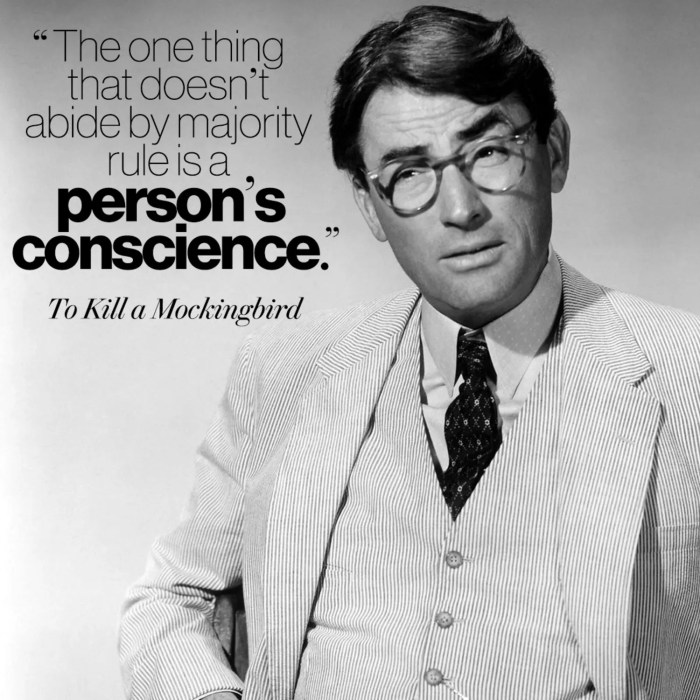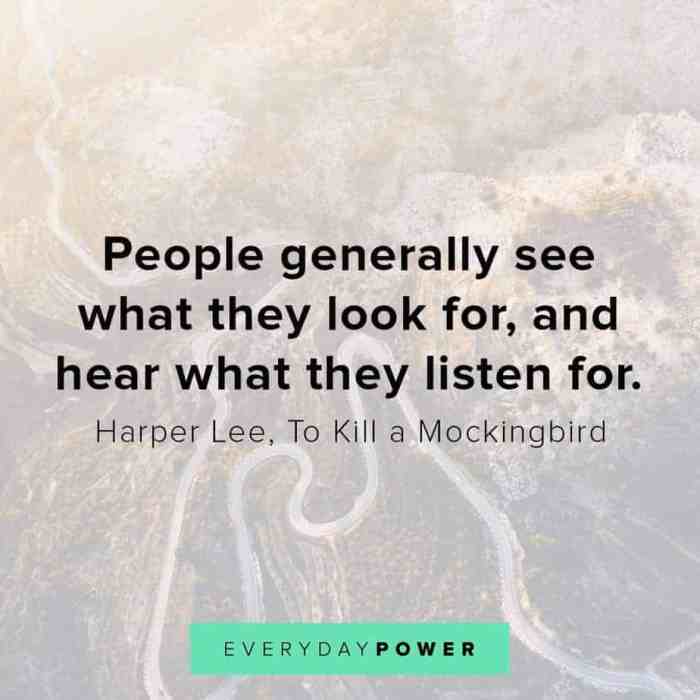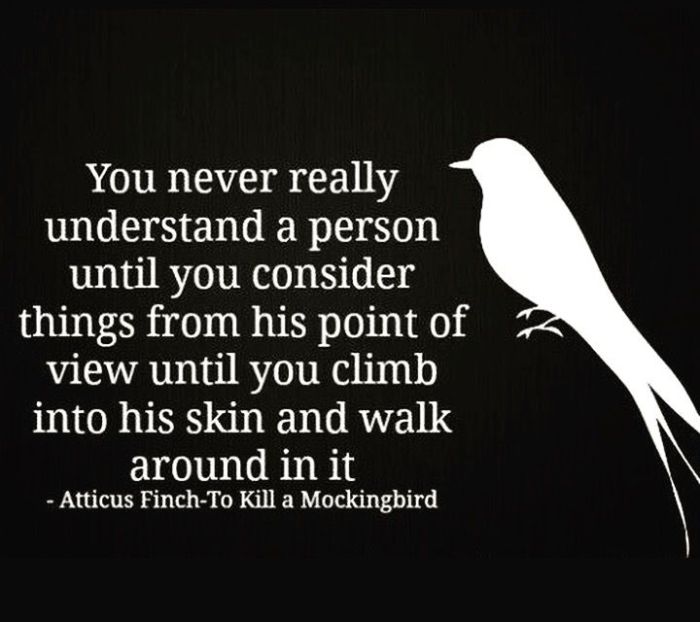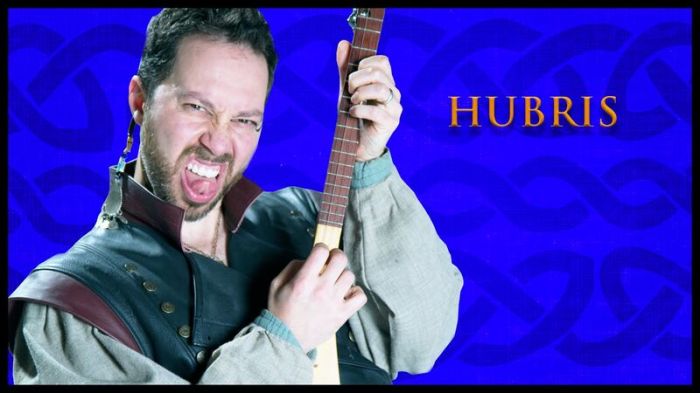To kill a mockingbird quotes about justice – Delving into “To Kill a Mockingbird” reveals a tapestry of profound quotes and perspectives on justice, inviting readers to contemplate its complexities and impact on individuals and society.
This exploration examines the significance of justice in the novel, analyzes key quotes that illuminate its nuances, compares diverse perspectives held by characters, and evaluates the impact of justice on their lives.
Exploring the Importance of Justice in “To Kill a Mockingbird”
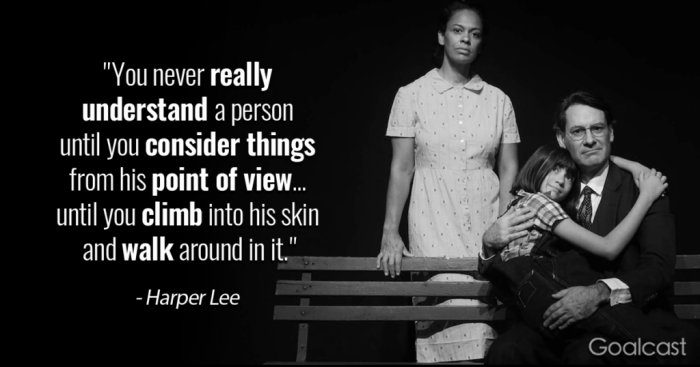
Justice plays a pivotal role in Harper Lee’s classic novel “To Kill a Mockingbird.” It shapes the characters’ actions, motivations, and the overall trajectory of the story. The pursuit of justice, often obstructed by racism and prejudice, serves as a central theme that drives the narrative and highlights the complexities of human nature.
Analyzing Key Quotes about Justice, To kill a mockingbird quotes about justice
The novel features several memorable quotes that encapsulate the importance of justice. One such quote, uttered by Atticus Finch, emphasizes the fundamental equality of all individuals: “You never really understand a person until you consider things from his point of view…
Until you climb into his skin and walk around in it.” This quote underscores the need for empathy and understanding in the pursuit of justice.
Another significant quote comes from Miss Maudie Atkinson: “The one thing that doesn’t abide by majority rule is a person’s conscience.” This quote highlights the power of individual conscience and the importance of standing up for what is right, even when it goes against popular opinion.
Comparing Different Perspectives on Justice
The novel presents varying perspectives on justice through its characters. Atticus Finch, a lawyer, embodies the pursuit of justice through the legal system. He believes in due process and the presumption of innocence, even when representing an unpopular client. In contrast, Bob Ewell, a racist and bigoted farmer, represents a distorted view of justice, using violence and intimidation to suppress those he deems inferior.
Tom Robinson, an African American man falsely accused of a crime, becomes the symbol of the failure of justice in a society marred by racial prejudice. His trial and subsequent death highlight the systemic injustices faced by people of color.
Evaluating the Impact of Justice on the Characters
The pursuit of justice has profound consequences for the characters in the novel. Atticus’s unwavering belief in justice inspires his children, Scout and Jem, to question the norms of their society and stand up for what is right. However, the trial and Tom Robinson’s death leave an emotional scar on the family, demonstrating the toll that injustice can take.
Exploring the Symbolism of Justice
The novel uses various symbols to reinforce the themes related to justice. The mockingbird, a harmless creature, becomes a symbol of innocence and the injustice it faces when it is killed. The Radley house, shrouded in mystery and fear, represents the hidden evils of society that perpetuate injustice.
Essential Questionnaire: To Kill A Mockingbird Quotes About Justice
What is the significance of justice in “To Kill a Mockingbird”?
Justice serves as a central theme, shaping characters’ actions, motivations, and the novel’s overall message about the complexities of human nature and societal prejudice.
How does the novel explore different perspectives on justice?
The novel presents varying viewpoints on justice through characters like Atticus Finch, Bob Ewell, and Tom Robinson, highlighting the influence of personal beliefs, biases, and societal norms on the pursuit of justice.
What is the role of racism and prejudice in shaping the pursuit of justice?
Racism and prejudice play a pivotal role in the novel, demonstrating how they can obstruct the fair administration of justice and perpetuate inequality.
